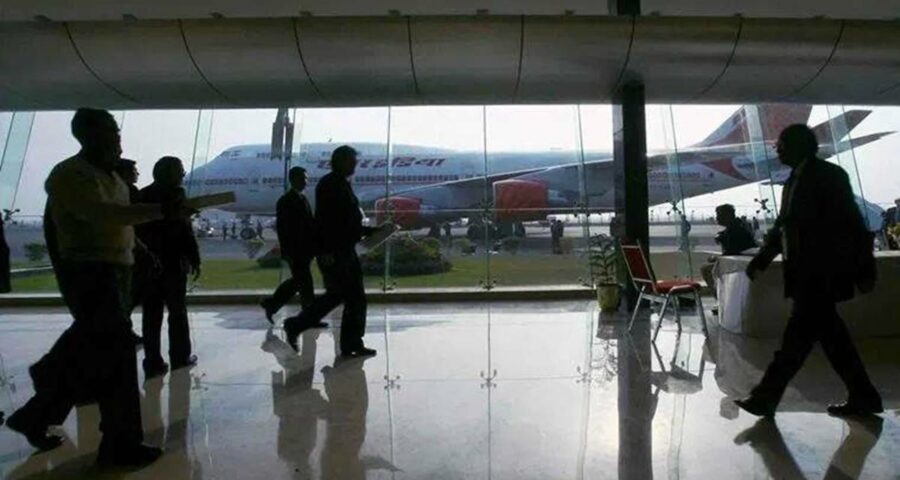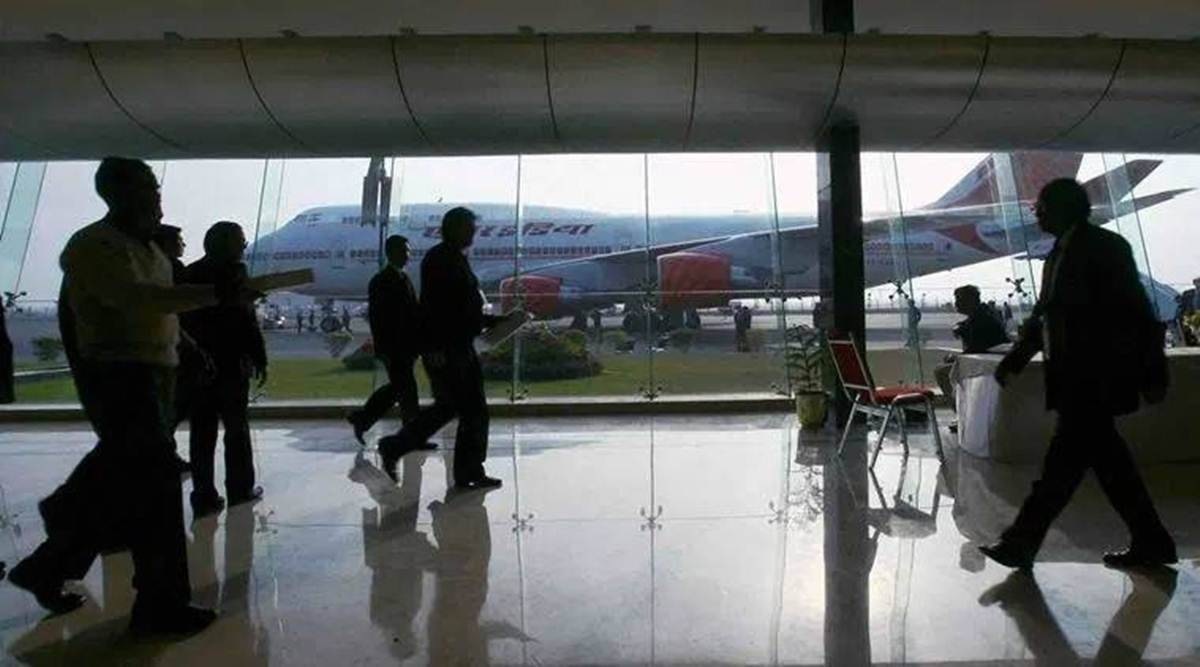🔴 Domestic air travellers coming into Maharashtra will also have to carry a negative RT-PCR test report – sample tested within 48 hours of arrival – irrespective of their vaccination status.
With six international passengers from “countries at-risk” testing positive for Covid-19 in Maharashtra, the state government on Tuesday tightened rules for international travellers, making institutional quarantine of seven days compulsory for all coming from these countries.
Domestic air travellers coming into Maharashtra will also have to carry a negative RT-PCR test report – sample tested within 48 hours of arrival – irrespective of their vaccination status.
With an eye on reports from across the world about Omicron, the new Covid-19 “variant of concern”, the Union government had on Sunday issued revised guidelines for international travellers arriving from Europe – including the UK, and 11 other “at risk” countries – mandating testing on arrival, home quarantine for seven days post a negative test result, and a retest on the eighth day.
The government on Tuesday announced that six international passengers from “countries at-risk” have tested positive in Maharashtra. Their samples have been sent for genome sequencing to ascertain if they are carrying the pathogen of Omicron. The government has also advised all districts to run S-Gene Target Failure (SGTF) test, a molecular tool for immediate identification of a suspected Omicron case.
The state also issued its own set of rules for international travellers, more stringent than the rules laid down by the Centre.
The new rules state that international passengers from at risk countries will have undergo mandatory institutional quarantine and RT-PCR tests on Day 2, 4 and 7. If a test is positive, the person would be shifted to a hospital. Even if all test reports come negative, passengers still need to quarantine themselves for a further seven days at home.
Apart from all countries in Europe, including the UK, there are 11 other nations listed as “at-risk” by the Health Ministry – South Africa, Brazil, Bangladesh, Botswana, China, Mauritius, New Zealand, Zimbabwe, Singapore, Hong Kong and Israel.
Passengers from countries not at risk will have to undergo an RT-PCR test on arrival and if found to be negative, they will home quarantine for 14 days. If found positive, they would be shifted to a hospital. Outbound passengers with a connecting flight from Maharashtra will undergo RT-PCR test at the airport and the results of the test will be conveyed to the connecting airline. If found positive, the receiving airport will be informed.
Domestic air travel passengers travelling within the state will need to carry a certificate of double vaccination, or an RT-PCR report within 48 hours. However, for all passengers coming from outside Maharashtra, a negative RT-PCR test report within 48 hours of arrival will be compulsory.
The state government has asked the deputy commissioner of police (Immigration) and Foreign Regional Registration Office to prepare a proforma for all arriving passengers on international flights to give details of travel history of the last 15 days and it will be verified by immigration officers. If a passenger gives incorrect information, he will be booked under the Disaster Management Act.
A senior IAS officer said, “Nationals coming from every country will have to undergo RT-PCR test. We don’t know where the new variant is coming from. Wider check is required now. Even if a few people are detected with the new strain, it is a big challenge. It may inconvenience a few, but this phase is challenging.”
An official statement from the Chhatrapati Shivaji International Airport in Mumbai said, “Arriving passengers from high-risk countries will be segregated from passengers arriving from low-risk countries. Adequate RT-PCR testing facility in international arrivals in the form of 48 registration counters and 40 sampling booths… Three laboratories for RT-PCR testing labs – Lifenity, Suburban Diagnostics and Acu-MDx (Mylabs) – have been assigned for checking. In addition to normal RT-PCR, 30 Rapid PCR machines are available for passengers having connecting onward flights with short connecting time. This facility will be upscaled further if required.”
A large sitting area for the passengers awaiting their RT-PCR test results has been activated with amenities like washrooms and cafeteria, the spokesperson said.
At present, BMC has 6,000 beds for institutional quarantine of international passengers. “We have around 1,000 beds in Byculla jumbo centre, which are free of cost. Along with this, we have identified 20 hotels for the travellers with 5,000-bed capacity. But it will be a paid service, starting from Rs 1,000 per day,” said Suresh Kakani, Additional Commissioner, Brihanmumbai Municipal Corporation (BMC).
BMC will further increase bed capacity for institutional quarantine in other jumbo centres like NESCO and BKC among others. “At present, the footfall of international travellers is less due to the restrictions. Depending on the need, we will increase the capacity,” said Kakani.
The six passengers who tested positive are from the jurisdiction of BMC, Kalyan-Dombivali Municipal Corporation, Mira-Bhayandar Municipal Corporation and Pune Municipal Corporation. Two Covid-19 positive patients have been identified from the Pimpri-Chinchwad Municipal Corporation area.
All the infected patients are either asymptomatic or mildly symptomatic. The health department is in the process of tracing nearly 70 close contacts of these six infected patients.
The 40-year-old patient who tested positive in Mumbai is a resident of a western suburb. He returned to Mumbai on November 25 from South Africa. Around 15 of his close contacts have been identified and home quarantined. His swab samples were taken on Monday and positive report came on Tuesday. To check if he was infected with Omicron, BMC also performed an SGTF test on him on Tuesday morning.
SGTF refers to the S gene – an element of the virus not present in the Omicron variant. So, if the S gene is not present in a polymerase chain reaction (PCR) sample, the patient is highly likely to be infected with the Omicron variant. “We didn’t find S-gene so it is unlikely that he has Omicron. But to rule out any doubts, we have sent his samples for genome sequencing,” said Kakani.
It takes nearly a week to get the report of genome sequencing. Chief Additional Secretary Dr Pradeep Vyas has instructed all the 36 districts to run SGTF tests. “The SGTF test is also one presumptive test, it can lessen the numbers of samples being sent for genomic sequencing. I have suggested the same to all the districts but kits may not be available with field officers readily,” said Kakani.
Kakani said that over 1,000 international passengers from African nations have landed in Mumbai in the last 15 days. “So far, we have got a list of 466 passengers from the airport,” he added.
Source: Read Full Article


